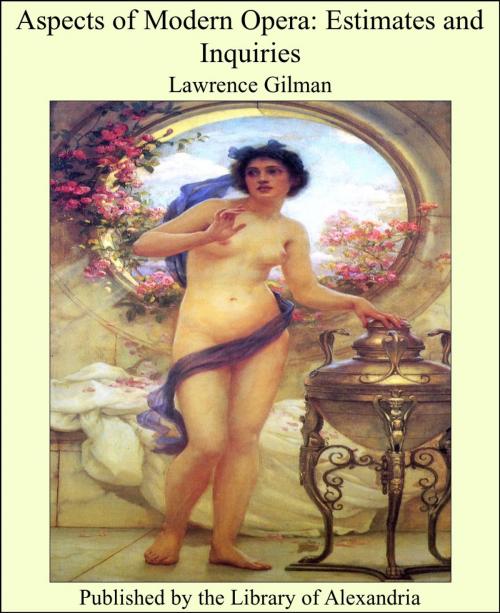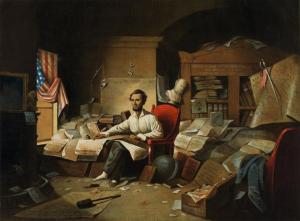Aspects of Modern Opera: Estimates and Inquiries
Nonfiction, Religion & Spirituality, New Age, History, Fiction & Literature| Author: | Lawrence Gilman | ISBN: | 9781465520968 |
| Publisher: | Library of Alexandria | Publication: | March 8, 2015 |
| Imprint: | Language: | English |
| Author: | Lawrence Gilman |
| ISBN: | 9781465520968 |
| Publisher: | Library of Alexandria |
| Publication: | March 8, 2015 |
| Imprint: | |
| Language: | English |
Since that day when, a quarter of a century ago, Richard Wagner ceased to be a dynamic figure in the life of the world, the history of operatic art has been, save for a few conspicuous exceptions, a barren and unprofitable page; and it has been so, in a considerable degree, because of him. When Mr. William F. Apthorp, in his admirable history of the opera—a book written with unflagging gusto and vividness—observed that Wagner's style has been, since his death, little imitated, he made an astonishing assertion. "If by Wagner's influence," he went on, "is meant the influence of his individuality, it may fairly be said to have been null. In this respect Wagner has had no more followers than Mozart or Beethoven; he has founded no school." Again one must exclaim: An astonishing affirmation! and it is not the first time that it has been made, nor will it be the last. Yet how it can have seemed a reasonable thing to say is one of the insoluble mysteries. The influence of Wagner—the influence of his individuality as well as of his principles—upon the musical art of the past twenty-five years has been simply incalculable. It has tinged, when it has not dyed and saturated, every phase and form of creative music, from the opera to the sonata and string quartet. It is not easy to understand how anyone who is at all familiar with the products of musical art in Europe and America since the death of the tyrant of Bayreuth can be disposed to question the fact. No composer who ever lived influenced so deeply the music that came after him as did Wagner. It is an influence that is, of course, waning; and to the definite good of creative art, for it has been in a large degree pernicious and oppressive in its effect. The shadow of the most pervasive of modern masters has laid a sinister and paralysing magic upon almost all of his successors.
Since that day when, a quarter of a century ago, Richard Wagner ceased to be a dynamic figure in the life of the world, the history of operatic art has been, save for a few conspicuous exceptions, a barren and unprofitable page; and it has been so, in a considerable degree, because of him. When Mr. William F. Apthorp, in his admirable history of the opera—a book written with unflagging gusto and vividness—observed that Wagner's style has been, since his death, little imitated, he made an astonishing assertion. "If by Wagner's influence," he went on, "is meant the influence of his individuality, it may fairly be said to have been null. In this respect Wagner has had no more followers than Mozart or Beethoven; he has founded no school." Again one must exclaim: An astonishing affirmation! and it is not the first time that it has been made, nor will it be the last. Yet how it can have seemed a reasonable thing to say is one of the insoluble mysteries. The influence of Wagner—the influence of his individuality as well as of his principles—upon the musical art of the past twenty-five years has been simply incalculable. It has tinged, when it has not dyed and saturated, every phase and form of creative music, from the opera to the sonata and string quartet. It is not easy to understand how anyone who is at all familiar with the products of musical art in Europe and America since the death of the tyrant of Bayreuth can be disposed to question the fact. No composer who ever lived influenced so deeply the music that came after him as did Wagner. It is an influence that is, of course, waning; and to the definite good of creative art, for it has been in a large degree pernicious and oppressive in its effect. The shadow of the most pervasive of modern masters has laid a sinister and paralysing magic upon almost all of his successors.















